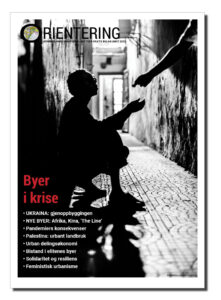
• UKRAINE: the reconstruction
• NYE BYER: Africa, China, 'The Line'
• Consequences of pandemics
• Palestine: urban agriculture
• Urban sharing economy
• Assistance in the elite's cities
• Solidarity and resilience
• Feminist urbanism
Appendix attached to the autumn edition of MODERN TIMES. The edition's editor is Erik Berg.